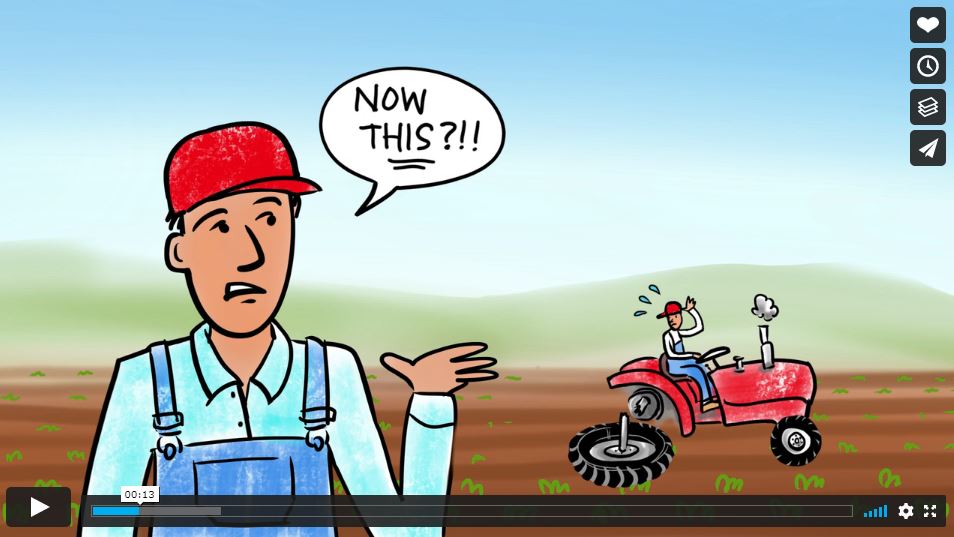MONDAY, AUGUST 30, 2021. BY CALAMP.
About CALAMP
The California Agricultural Mediation Program (CALAMP) is the official United States Department of Agriculture certified agricultural mediation program for California. CALAMP’s services are FREE to the agricultural community on many issues. Mediation is a way to resolve disputes using an impartial person to assist parties negotiate their differences. Discussions and notes made during mediation cannot be shared unless everyone agrees to do so. Keeping information private helps create a safe space for difficult conversations. If the parties come to an agreement or plan, they may then decide to share it outside of the meeting. Mediators are trained to help people talk to each other in a productive way. The mediator does not take a “side” in the conversation, but instead is there to support the conversation and move it forward to address the issue at hand. All CALAMP mediators have agricultural backgrounds, so they understand the issues that are unique to the industry.
“The California Agricultural Mediation Program provides free mediation services to the agricultural community on many issues. Mediation is an informal and fast way to resolve problems and I encourage you to contact them if you need assistance. The program is certified by CDFA and USDA.” — Karen Ross, CDFA Secretary
The mediator facilitates the discussion to help the parties reach an agreement or plan. Should the parties reach an agreement, the mediator will draft a settlement agreement, which is a binding contract. But the parties, not the mediator, decide the outcome and course of action. Statistically, 75 percent of mediations result in an agreement. Even if a final agreement is not reached, usually everyone gains a better understanding of the issue. Mediation can go hand-in-hand with other processes such as working with an estate planner or financial consultant concerning farm transitions or loan and credit issues. Mediation can reopen lines of communication and help repair strained business relationships.
What Kind of Agricultural Issues Can Be Mediated for Free?
-
USDA Farm and Conservation Programs, such as EQIP and TAP
-
- USDA farm and conservation programs often have complicated requirements that can include significant penalties for non-compliance. Farm or environmental conditions can change, making it difficult to meet planned objectives. Misunderstandings can arise about initial expectations or whether expectations have been met. Mediation can facilitate communication, help parties better understand each other’s perspectives, and resolve underlying issues. Mediation helps the farmer maintain control over final decision making.
-
-
Farm Loans
-
- Farm loans can provide crucial funding for farm ownership and operating expenses. Loan sources can include the USDA Farm Service Agency, Farm Credit banks, private banks, or even a friend or family member. If repayments have become a problem or changes are needed to the loan’s terms, a neutral mediator can help with loan modifications and repayments. Working with a mediator may also help address possible foreclosures.
-
-
USDA Rural Development Loans
-
- USDA Rural Development loans also offer home ownership opportunities to low- and moderate-income rural Americans. When problems arise, mediators can help parties reach agreement on loan denials, modifications, and repayment plans.
-
-
Farm Credit/Debt Issues
-
- Farm-related credit and debt issues can arise with feed or equipment dealers and credit card companies. Mediation can help work out lump-sum or monthly installment payment plans or other arrangements.
-
-
Leases (Land and Equipment)
-
- Leases are important options for long term access to farmland, or for equipment use, but parties may differ in how they interpret the terms after the lease is executed. Conditions may have changed, or one side may be perceived as not living up to the bargain. Mediation can help parties negotiate the terms of new land and equipment leases and resolve conflicts with existing leases.
-
-
Family Farm Transitions
-
- Decisions about the long term future of a family farm can be financially and emotionally challenging. A neutral mediator can help farm families clarify changing roles and responsibilities, agree on financial terms, and navigate difficult conversations that often are part of family farm transitions.
-
-
Farmer-Neighbor Disputes
-
- Disputes related to noises, odors, pesticide application or other issues can cause friction with nearby property owners. Mediation can help parties craft solutions to address concerns that arise from farming operations.
-
-
Organic Certification
-
- Disagreements about organic certification or de-certification can have major impacts on market access. Mediation can help organic farmers and certifying agents focus on areas of contention to develop mutually agreeable solutions.
-
-
Wetlands Determinations
-
- Wetlands determinations can limit options for use of the land. If a farmer disagrees with a wetlands determination, mediation can be a useful process to bring experts into the process to ensure both sides agree on delineation of the wetland.
-
-
Pesticide Issues
-
- Pesticide use is heavily regulated and can be contentious. Mediation can help parties address issues concerning pesticide application, enforcement, drift, buffers, and other issues.
-
-
Crop Insurance
-
- Crop damage due to pests or weather can be devastating, but crop insurance doesn’t always provide the relief expected by a farmer. Mediation can help farmers and insurance companies work out damage claims on USDA Risk Management Agency insurance policies.
-
-
Credit Counseling
-
- When finances are tight, farmers must make critical decisions about paying back farm loans, credit card companies, and lessors, while still meeting basic living expenses. Credit counseling can help farmers get an overview of their financial situation, including cash flow requirements, and develop a plan to work with creditors in order to maintain farm operations.
-
Note that if your issue is not included in our authorized list of covered topics, CALAMP can work with you to find an affordable option.
How Much Does Mediation Cost?
CALAMP provides free mediation services to the agricultural community in California on the issues listed above. For other agricultural issues, CALAMP will provide the mediation services free of charge when other funding sources are available. In some cases, CALAMP may ask parties to pay based on a sliding scale.
What Is A Mediation Session Like?
Mediation sessions begin with a joint session with all participants present. The purpose of the joint session is to define the issues and ascertain the interests and concerns of all parties. The mediator begins by welcoming the participants, explaining how mediation works, and explaining the ground rules for the session. After introductory remarks, each participant has the opportunity to make a brief opening statement and provide their perspective on the problem.
Following the opening statements, there is generally a discussion to clarify the issues, consider the relevant information and data, and explore options. Sometimes, a joint session is followed by a private meeting between the mediator and each party. This allows each side to explain and enlarge upon their goals for the mediation in confidence. Depending on the nature of the dispute and the dynamics of the mediation session, the mediator may alternate between private and joint sessions until the parties have resolved their differences, decided to reconvene for additional sessions, or determined that further mediation is no longer constructive.
Steps To Request Mediation Through CALAMP
- Fill out the Request for Mediation form, available HERE (scroll to bottom of page).
- CALAMP staff will confirm that the other party (or parties) is/are willing to participate in the mediation.
- CALAMP staff will conduct brief confidential interviews to learn background information about the dispute.
- CALAMP will assign a mediator from the Agricultural Mediation Roster or CALAMP staff based on subject matter expertise, geography, and availability.
- The mediator will contact the parties to arrange a date, time and location for the mediation session.
 Meet Our Local Mediator, Larry Whitted
Meet Our Local Mediator, Larry Whitted
Larry Whitted is a graduate of the University of California at Berkeley and has 17 years of experience as a professional mediator mediating agricultural and workplace disputes throughout California and Nevada in English and Spanish. He uses a “facilitative” approach to mediation in which the participants retain all decision-making power. In addition, Larry has 36 years of experience as a licensed pest control adviser working primarily with permanent crops in California.
CASE STUDY: NRCS Cost Share Dispute
A farmer entered into a cost share arrangement with NRCS for a manure storage system. The farmer was concerned that the contractor who performed the work did not follow all the specifications in the contract and refused to pay the contractor the remaining balance. At the mediation, the farmer, NRCS, and the contractor had an opportunity to talk about exactly what was done differently and why it was done that way. Once all the parties had a greater understanding of the nature of the work performed, the mediator facilitated a discussion on possible ways to resolve the dispute. Since mediation sessions are confidential, each party could talk openly about which options could be acceptable. The parties were then able to reach an agreement that was acceptable to all parties and most importantly it provided a means for dealing with any future problems.
CASE STUDY: Farm Loans Complicate Family Farm Transition
Farm loan and other credit issues can make a family farm transition complicated and challenging. When the next generation takes over control of the farm, there are difficult conversations required both within the family and between the family and the lender. There are questions about cash flow, debt, workload, and fairness and equity between siblings. Conflicts can arise between parents and their children or between siblings concerning management of the farm, farm credit and other financial issues. If the conflict is not resolved early on and in a constructive manner, families and businesses can be torn apart. The agricultural mediation program has helped several families deal with these issues by working with all family members to focus on their interests and resolve financial and other management issues.
CONTACT CALAMP
For more information, submit a request for mediation at calamp.org.
Or contact:
- Matt Strassberg (Director) at 916-330-4500 x101 or matts@emcenter.org
- Jenna Muller (Northern CA Coordinator) at 916-330-4500 x104 or jennam@emcenter.org
- Mary Campbell (Southern CA Coordinator) at 916-330-4500 x103 or maryc@emcenter.org
Have something interesting to say? Consider writing a guest blog article!
To subscribe to the Coffee Shop Blog, send an email to stephanie@lodiwine.com with the subject “blog subscribe.”
To join the Lodi Growers email list, send an email to stephanie@lodiwine.com with the subject “grower email subscribe.”
To receive Lodi Grower news and event promotions by mail, send your contact information to stephanie@lodiwine.com or call 209.367.4727.
For more information on the wines of Lodi, visit the Lodi Winegrape Commission’s consumer website, lodiwine.com.
For more information on the LODI RULES Sustainable Winegrowing Program, visit lodigrowers.com/standards or lodirules.org.



